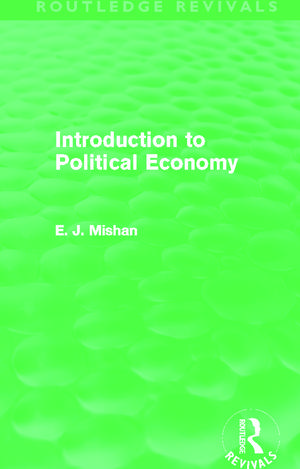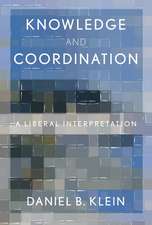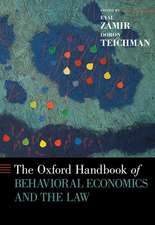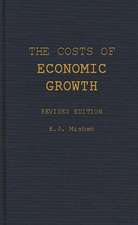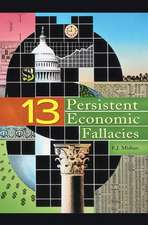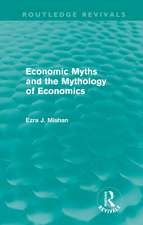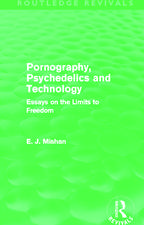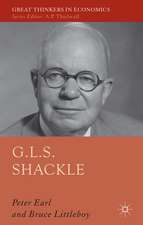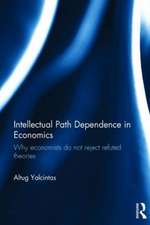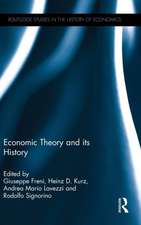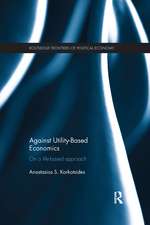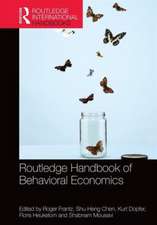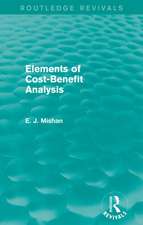Introduction to Political Economy (Routledge Revivals): Routledge Revivals
Autor E. Mishanen Limba Engleză Paperback – 30 sep 2012
| Toate formatele și edițiile | Preț | Express |
|---|---|---|
| Paperback (1) | 364.17 lei 6-8 săpt. | |
| Taylor & Francis – 30 sep 2012 | 364.17 lei 6-8 săpt. | |
| Hardback (1) | 1062.26 lei 6-8 săpt. | |
| Taylor & Francis – 30 aug 2011 | 1062.26 lei 6-8 săpt. |
Din seria Routledge Revivals
- 9%
 Preț: 801.71 lei
Preț: 801.71 lei - 8%
 Preț: 432.64 lei
Preț: 432.64 lei -
 Preț: 153.83 lei
Preț: 153.83 lei -
 Preț: 230.80 lei
Preț: 230.80 lei -
 Preț: 309.79 lei
Preț: 309.79 lei -
 Preț: 258.73 lei
Preț: 258.73 lei - 9%
 Preț: 764.35 lei
Preț: 764.35 lei - 9%
 Preț: 903.42 lei
Preț: 903.42 lei -
 Preț: 311.18 lei
Preț: 311.18 lei -
 Preț: 357.45 lei
Preț: 357.45 lei - 9%
 Preț: 606.36 lei
Preț: 606.36 lei -
 Preț: 317.54 lei
Preț: 317.54 lei - 9%
 Preț: 764.30 lei
Preț: 764.30 lei -
 Preț: 257.01 lei
Preț: 257.01 lei -
 Preț: 238.40 lei
Preț: 238.40 lei -
 Preț: 259.48 lei
Preț: 259.48 lei - 9%
 Preț: 903.81 lei
Preț: 903.81 lei -
 Preț: 326.26 lei
Preț: 326.26 lei -
 Preț: 258.67 lei
Preț: 258.67 lei -
 Preț: 294.98 lei
Preț: 294.98 lei -
 Preț: 308.89 lei
Preț: 308.89 lei -
 Preț: 199.86 lei
Preț: 199.86 lei -
 Preț: 347.50 lei
Preț: 347.50 lei -
 Preț: 302.59 lei
Preț: 302.59 lei -
 Preț: 389.40 lei
Preț: 389.40 lei -
 Preț: 257.01 lei
Preț: 257.01 lei -
 Preț: 343.22 lei
Preț: 343.22 lei - 9%
 Preț: 640.91 lei
Preț: 640.91 lei - 9%
 Preț: 619.49 lei
Preț: 619.49 lei -
 Preț: 228.88 lei
Preț: 228.88 lei -
 Preț: 265.16 lei
Preț: 265.16 lei -
 Preț: 245.11 lei
Preț: 245.11 lei -
 Preț: 258.54 lei
Preț: 258.54 lei -
 Preț: 258.73 lei
Preț: 258.73 lei -
 Preț: 368.93 lei
Preț: 368.93 lei -
 Preț: 246.38 lei
Preț: 246.38 lei - 9%
 Preț: 832.08 lei
Preț: 832.08 lei -
 Preț: 258.67 lei
Preț: 258.67 lei -
 Preț: 286.99 lei
Preț: 286.99 lei - 18%
 Preț: 695.86 lei
Preț: 695.86 lei - 9%
 Preț: 934.96 lei
Preț: 934.96 lei - 5%
 Preț: 243.38 lei
Preț: 243.38 lei -
 Preț: 274.69 lei
Preț: 274.69 lei -
 Preț: 200.67 lei
Preț: 200.67 lei - 9%
 Preț: 638.62 lei
Preț: 638.62 lei -
 Preț: 259.69 lei
Preț: 259.69 lei - 9%
 Preț: 1038.47 lei
Preț: 1038.47 lei -
 Preț: 389.46 lei
Preț: 389.46 lei -
 Preț: 302.14 lei
Preț: 302.14 lei -
 Preț: 302.27 lei
Preț: 302.27 lei
Preț: 364.17 lei
Nou
Puncte Express: 546
Preț estimativ în valută:
69.68€ • 72.76$ • 57.54£
69.68€ • 72.76$ • 57.54£
Carte tipărită la comandă
Livrare economică 15-29 aprilie
Preluare comenzi: 021 569.72.76
Specificații
ISBN-13: 9780415688741
ISBN-10: 0415688744
Pagini: 274
Dimensiuni: 138 x 216 x 15 mm
Greutate: 0.32 kg
Ediția:1
Editura: Taylor & Francis
Colecția Routledge
Seria Routledge Revivals
Locul publicării:Oxford, United Kingdom
ISBN-10: 0415688744
Pagini: 274
Dimensiuni: 138 x 216 x 15 mm
Greutate: 0.32 kg
Ediția:1
Editura: Taylor & Francis
Colecția Routledge
Seria Routledge Revivals
Locul publicării:Oxford, United Kingdom
Cuprins
Part One: The agenda of the political economy 1. Introductory observations 2. The resistance to a prescriptive economics 3. The nature of the economist’s efficiency criterion 4. The rationale of the economist’s efficiency criterion 5. Things to come: a preview 6. The basic economic assumptions Part Two: Allocation within a partial economic context 7. Uses and limitations of a partial economic context 8. The key concepts of social value and social opportunity cost 9. Consumer surplus: a measure of welfare change 10. The difficulty of measuring rent 11. The allocative virtues of a competitive economy 12. Marginal cost pricing 13. Second best and third best Part Three: Collective goods and bads 14. Can the market cope with externalities? 15. Diminishing returns to agriculture as an instance of externalities 16. Environmental spillovers: what difference does the law make? 17. Non-environmental spillovers: some ethical questions 18. Favourable spillovers and collective goods Part Four: Resource allocation within a general context 19. Uses of a general economic context 20. Optimality for the economy 21. What is an efficient distribution of goods? 22. Economic efficiency: a paradox 23. Pareto optimality: an empty vessel 24. Resolving the apparent paradox Part Five: Sources of economic failure in a technological age 25. Introductory remarks 26. The folklore of the market 1 27. The folklore of the market 2 28. Economic expertise in an age of rapid innovation 29. The limits of abundance: a conservative critique 1 30. The limits of abundance: a conservative critique 2 31. Concluding remarks
Descriere
Descriere de la o altă ediție sau format:
First published in 1982, Introduction to Political Economy is a clear and concise introduction to the normative aspects of economics by one of the world’s leading authorities on the subject.
First published in 1982, Introduction to Political Economy is a clear and concise introduction to the normative aspects of economics by one of the world’s leading authorities on the subject.
